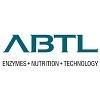
A Tool for Phytate Degradation and Nutrient Utilization
Mechanisms of Action for Phytase Enzymes in Poultry Diets for enhanced Phosphorus availability to Birds.?
1. Since first commercial utilisation, phytase has mainly been considered to be a tool to increase phosphourus (P) availability/digestibility from vegetable sources and so to reduce the inclusion of higher cost P sources. ??
2. Here, phytase releases the P bound in the phytate molecule, increasing the availability/digestibility of this mineral to the animal. ?
a) Thus, increasing the inclusion rate of phytase would be expected to release additional P from the indigestible feed phytate and consequently allow an even greater substitution of higher cost P sources.??
3. Phytate as an anti-nutrient:
a) As more phosphorus is removed from phytate, leading to more breakdown of intact IP-6, the less able it is to bind or chelate minerals, starch or proteins either directly or via ionic bridges (Selle & Ravindran, 2007). ??
b) Decreasing the binding of these compounds through the use of phytase may directly improve the digestibility not only of phosphorus and divalent cations such as Ca, Zn and Mg, but also indirectly increase energy and nitrogen utilization. ??
c) It is interesting that the effect of phytase on amino acid digestibility tends to be greatest on those amino acids that are prevalent in intestinal maintenance and turnover, namely cystine, threonine, proline and glycine when measured (Selle et. al., 2006).??
4. Several trials with higher doses of phytase using diets with normal levels of P have already shown better poultry performance, but this increase of performance was always correlated to an increase in P digestibility even if the diet did not have lower levels of P.
a) Phytases are digestive enzymes which release plant phosphorus from phytic acid.
b) Monogastric animals lack sufficient phytases to release the phosphorus.
c) Adding extra phytases to the diet increases phytate breakdown and consequent utilization of plant phosphorus.
d) If more phosphorus is available naturally, then less of this substance has to be added to the diet. This greatly reduces feed costs.??
5. Research findings on Phytase.
a) It has been clearly shown that phytate solubilises in the acidic region of the chicken gut, thus this is the critical area of digestion where one needs a highly efficacious phytase to work (Tamim, et al., 2004).
b) The response can vary depending if the product is thermo-tolerant and able to survive the normal pelleting process (Parr and Wyatt, 2006).
c) The intrinsically thermo-tolerant enzymes are clearly the best solution,
6. Right Phytase enzyme in poultry feed:
a) The concept of using phytase at high doses to reduce the anti-nutritional effect of phytate means that there is an opportunity to redefine nutritional knowledge.
b) When using a high dose of phytase to reduce or eliminate the anti-nutritional effects of phytate, special attention needs to be paid to the choice of the correct enzyme.
7. ADPHOS of ABTL is the latest generation of phytase.
a) Fast phytase in the market: highest source of inorganic phospate sources thus reducing feed cost.??
b) Leads to quick release of phosphorus.
c) intrinsic thermostable phytase and is stable in temperature exceeding 85 * C??
d) broader PH activity
e) in superdosing enhances performance
f) Better return on investment than competitive products.??



.jpg&w=3840&q=75)